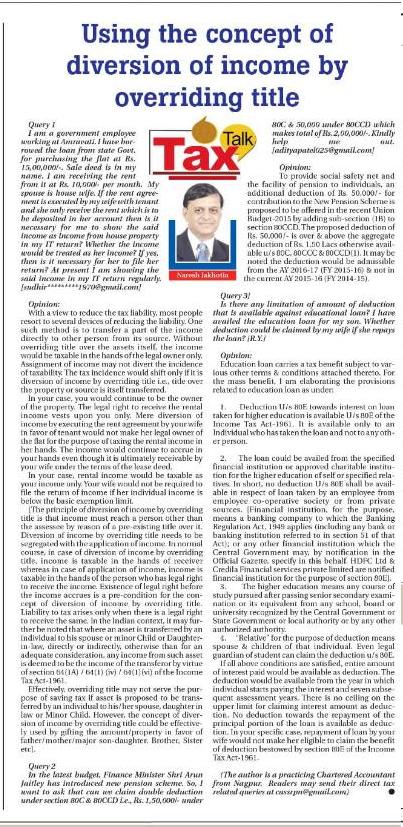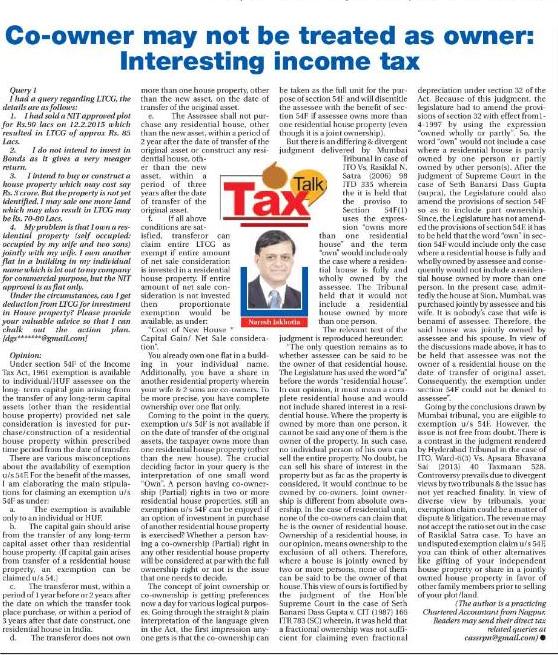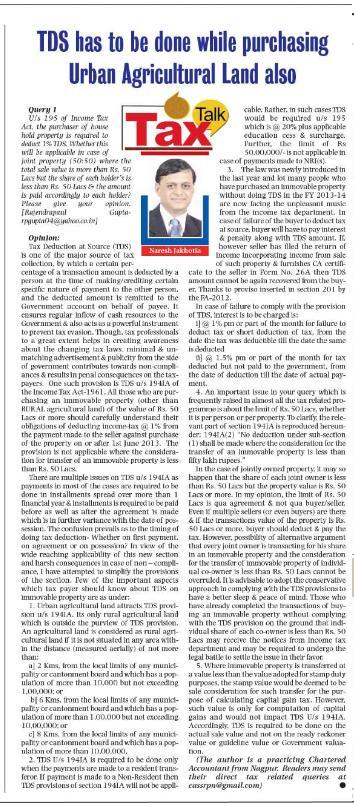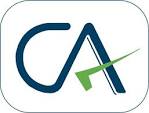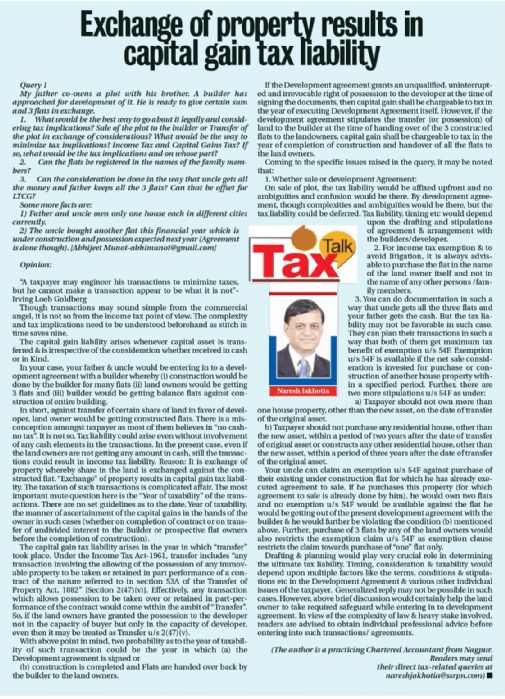Article Details
| New retail investors are eligible for tax benefit u/s 80CCG |
|
TAX TALK-30.01.2017-THE HITAVADA TAX TALK CA. NARESH JAKHOTIA Chartered AccountantNew retail investors are eligible for tax benefit u/s 80CCG Query 1] In case of salaried Govt. employee, for Income Tax exemptions in general, please advice:
Opinion:Option beyond Section 80C & 80D:Being in the last quarter of the financial year, lot many taxpayers started exploring the tax saving options more aggressively. Section 80C (deduction towards LIC/PPF/NSC etc investment) & 80D (deduction towards medi-claim policy payment) are the most commonly used tax saving options used by majority of the taxpayer. Deduction towards investment in long term infrastructure bond (u/s 80CCF) is no more available from A.Y. 2013-14. However, there are certain tax benefit beyond section 80C & 80D as well which may not have been utilized by lot many taxpayers. The following two deductions could help save some tax for individual taxpayers: . a] Deduction u/s 80CCD(1B): Section 80CCD(1B) in the Income Tax Act-1961 offers an additional deduction of Rs. 50,000/- to the taxpayer for contribution in the National Pension Scheme (NPS). The deduction is over and above the deduction of Rs. 1.50 Lacs available u/s 80C for contribution in LIC/PPF/NSC etc. Deduction of Rs 50,000/- under 80CCD (1B) is available to all the individuals who has not completed 60 years of age. b] Deduction u/s 80CCG: Section 80CCG has been inserted with effect from the assessment year 2013-14. U/s 80CCG, deduction is available to a new retail investor who is resident individual with gross total income not exceeding Rs.12 lakh. For deduction, taxpayers have to invest the amount in stock listed under BSE 100 or CNX 100 or those of PSU (public sector undertakings which are Navratnas, Maharatnas & Mini-ratnas. Even investment in Exchange Traded Fund (ETF) or Mutual Fund (MF) that have above investment in above stocks and are listed and traded in stock exchanges and settled through depository mechanism are also eligible for deduction. There is a lock-in period of 3 years in the scheme. If a resident individual claims a deduction for the assessment year 2013-14 u/s 80CCG, he shall not be entitled for any deduction under this section for any subsequent year. In other words, for the assessment year 2013-14, the deduction is available only in one assessment year to the extent of 50 per cent of amount invested during the previous year 2012-13 or Rs. 25, 000 whichever is less. However, this provision has been amended from the assessment year 2014-15. The modified provision permits deduction for three consecutive years, beginning with assessment year relevant to the previous year in which the listed equity share or listed units of equity oriented fund are first acquired. c] Other deductions: Individual taxpayer can further explore the possibility of claiming deduction u/s 80E towards payment of interest on loan taken for higher education, U/s 80DDB towards medical treatment of a specified disease/ailment, U/s 80G or U/s 80GGA towards donation to recognized trust/institutions etc. Deduction towards House Rent Allowance (HRA):
[The author is a practicing Chartered Accountant from Nagpur. Readers may send their direct tax related queries at SSRPN & Co 10, Laxmi Vyankatesh Apartment C.A. Road, Telephone Exch. Square Nagpur-440008 or email it at nareshjakhotia@ssrpn.com] |
 |




.png)
